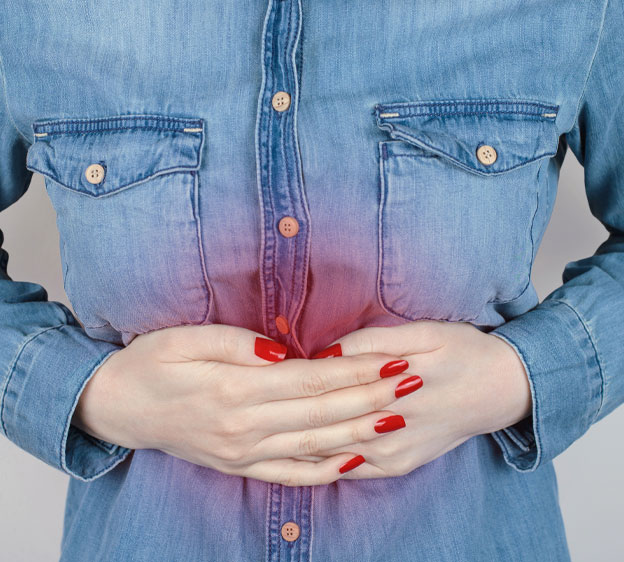
Eating brings a lot of enjoyment to a lot of people, especially here in the Lowcountry where we have such great regional cuisine. So when dull, burning pain, nausea or other unpleasant symptoms interrupt your ability to enjoy your meals, you want it to stop — and quickly.
Painful ulcers, or sores, can develop anywhere in your digestive tract, from your esophagus to your stomach and small intestine. Stomach ulcers are the type you’ve most likely heard about.
“Your stomach is protected by a thick layer of mucus that prevents highly acidic digestive juices from damaging the lining of your stomach,” says Marie Wilkinson, board-certified family nurse practitioner with Beaufort Memorial Lowcountry Medical Group. “When this protective layer is degraded, digestive acids will eat away at the stomach lining, causing an ulcer to develop.”
Risk factors for stomach ulcers, also called peptic ulcer disease, include:
- Alcohol use
- H. pylori, a type of bacteria that can affect the stomach lining and cause inflammation
- Smoking
- Use of nonsteroidal anti-inflammatories, such as aspirin, ibuprofen, naproxen and diclofenac
Many people assume that stress and eating spicy foods cause stomach ulcers, but interestingly, there’s little evidence this is the case. However, stress and spicy foods can make ulcers worse.
Read More: What’s the Difference Between Heartburn, Acid Reflux and GERD?
Signs of a Stomach Ulcer
These five common stomach ulcer symptoms can be a good indication that you have an ulcer in your stomach.
- Dull, burning stomach pain: The most common symptom of a stomach ulcer is a dull burning sensation in the stomach that usually arises when you eat or drink. It may appear for minutes or hours, and it can come and go over the course of a few days to weeks. Antacids may help in the short term but not if the ulcer goes untreated.
- Burping and bloating: In some cases, H. pylori infections can lead to bloating and gas.
- Nausea, vomiting and changes to your stools: When ulcers are torn, they can bleed. Blood in your vomit, vomit that has the appearance and consistency of coffee grounds, and black, tarry stools are signs of internal bleeding and a bleeding ulcer.
- Weight loss: When your stomach hurts, you may not want to eat. Decreased appetite and unintentional weight loss can be signs of a stomach ulcer.
- Indigestion: At first, you may think your stomach pain is caused by acid reflux or gastroesophageal reflux disease. Acid reflux is typically a problem of the esophagus, but stomach ulcers, as their name suggests, affect the stomach. You can treat both with antacids.
Read More: 9 Symptoms You Should Never Ignore
Do Stomach Ulcers Go Away?
Most stomach ulcers, if treated early, will go away with prescription medication. The type of medication you receive depends on the variety of ulcer you are experiencing.
If your stomach ulcer is the result of H. pylori, you will be prescribed antibiotics. Regardless of the cause, your doctor may recommend medications called proton pump inhibitors that block the cells in your body that produce stomach acid. Your doctor may also prescribe histamine receptor, or H2, blockers to further reduce stomach acid production.
“Eating a healthy diet can reduce the likelihood of ulcers developing,” Wilkinson adds. “Foods such as broccoli, cauliflower, cabbage, radishes, spinach, kale, apples, blueberries and olive oil can actively work against the overproduction of H. pylori. Additionally, the consumption of probiotic foods (such as yogurt and honey) coupled with lifestyle changes such as quitting smoking and exercising regularly, will go a long way in both preventing and treating stomach ulcers before they become serious.”
Struggling with stomach ulcers? Find a Beaufort Memorial gastroenterologist who can help.

